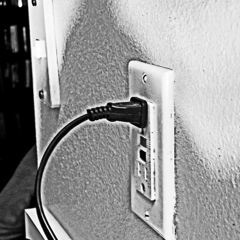How effectively are you managing your own personal energy? The defining mantra in the modern workplace is, “More, bigger, faster.” More information than ever is available, we are expected to juggle more balls than ever and get more done in less time. Managing your energy levels in this environment may be the key to success.The Energy Project was founded in 2003 by bestselling author and performance expert Tony Schwartz. They developed the Energy Audit to measure how effectively individuals manage their personal energy. The audit captures how well respondents are managing energy in the physical, emotional, mental and spiritual dimensions.
Read these statements and decide if you agree:
- I don’t regularly get 7 to 8 hours of sleep and/or I often wake up feeling tired.
- I don’t take regular breaks during the day to renew and recharge.
- I frequently find myself feeling irritable, impatient or anxious at work, especially when demand is high.
- I spend much of my time reacting to immediate demands rather than focusing on activities with longer-term leverage.
- I have difficulty focusing on one thing at a time and I am easily distracted during the day, especially by email.
- My decisions at work are often more influenced by external demands rather than by a strong, clear sense of my own purpose.
While thousands have completed the audit at clients over the past ten years, in 2010, they began to formally collect data from the public at large in order to take a broader pulse of the world at work. In that study, they found 60-80% of participants agreeing with the above statements.
This made me want to sit down with one of their clients and learn how they are solving these problems. Demetrios Deligiorgis is in Financial Operations at Sony Pictures Entertainment. He has gone through the audit process, participated in the training sessions held across all positions at Sony and adopted the rituals he learned in the process. If his energy level is any indicator this stuff works, he held my attention for 30 minutes while describing the “life-changing event.”
When we first sat down he said, “Have you take the Energy Audit? If not you have to, this will change the way work. It is one of the best things Sony has done to prepare us for the future. They sent the top executives to a three-day training class to ensure they understood this transformational change and were prepared to take on the role of Chief Energy Officers. Now that’s commitment!”
Demetrious was included in the two courses and every front-line employee attended at least the one-day course. I asked him to tell me about the biggest change he has seen at Sony since this began. He said, “Meetings are shorter! This might not have been the top thing they planned to teach us, but prior to this training we had meetings that would drag on for what seemed like an eternity. Now, everyone knows the science of why energy decreases dramatically after sitting for just 50 minutes. Now if we have a need to meet for six hours, we try to break it up into multiple sessions to ensure we stay productive.”
When we began to talk about how he has personally changed his habits, the list was long. At the top was a keen understanding of how much exercise he personally needed to be at his peak performance at work. He says, “I now ride my bike to work to ensure I get at least 30 minutes of cardio in my day. I also learned that I personally need a 10-minute walk every two hours in my workday or I begin to lose energy. It might just be a walk around the building, but now I do it. And it’s not to get a cup of coffee, because I know the caffeine will actually decrease my energy over time.”
Demetrious is not alone. David Hendler, EVP and CFO, Sony Pictures reinforces why this works. “The rituals that we had to build into our everyday work environment – that really, helped to make it stick. So everyone had something that they did either every day, every week or once month. And so that lasted a lot longer than getting something in a binder that sat on a shelf and you had to pull it out to remind yourself what to do.”
Is this a fad? Some business guru selling a magic elixir? I don’t think so. Employee engagement has been a top concern since the layoffs that accompanied the recession. Companies such as Google, Ford, Apple, Marriott, Ernst and Young and Pfizer are using this to drive higher levels of engagement, focus and productivity by harnessing the science of high performance.
Don’t miss a single free template! Keep up-to-date with Fast Track Tools by subscribing to our blog, via Twitter @fasttracktools and join our Facebook community! Connecting will ensure your don’t miss special subscriber or “friend” only offers down the road.
photo by jnyemb
